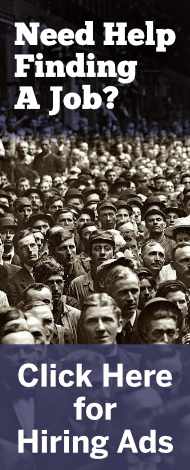
By: Jane Nice
Paulding County Bicentennial Committee Part 1 of 2
PAULDING – Today we have easy access to staggering amounts of information from several sources, but imagine what life was like a century ago. Books, newspapers and periodicals—almost the sole sources of knowledge—were scarce, costly and unavailable to most citizens.
Free public libraries were needed for the advancement of rural communities, and women often led the charge. While their husbands were conducting the commerce that built their towns and villages, their wives worked to champion literacy and education, and in many cases were the driving force behind establishing libraries for their towns, or in the case of Paulding, for the benefit of the entire county.
In March 1890, the Ladies Literary Society was established in Paulding, and its members adopted the following preamble to their constitution: “We the undersigned feeling that home and society demand of the women of to-day the broadest culture, and being well aware that our influence and enjoyment will be increased by such culture; believing also that the interchange of thought and unity of action and purpose will stimulate mental growth, do unite ourselves as a woman’s society for the sole purpose of mental improvement.”
Charter members Belle Crain, Cynthia Durfey, Helen Gasser, Gertrude Kling, Belle Knapp, Odie McMillen, Amanda Pursel, Delphene Ross, Anna Savage, Axa Spring and Nettie Wheeler elected officers Elizabeth Heller, president; Josephine Powell, vice-president; Edith Seiders, secretary; and Pearl Allen, treasurer.
The Ladies Literary Society met every Friday at 2 p.m. in members’ homes determined by an alphabetical rotation. At each meeting, one of the ladies presented a report on a cultural or literary topic based on their predetermined theme for that year. At least once annually, often on New Year’s Eve, the ladies invited their husbands and expanded their meetings to include elaborate meals, games and entertainment.
Each lady paid a membership fee of two dollars and subsequent annual fees of fifty cents; this money was used to purchase reading materials. Within a few years, they had acquired enough books to establish a circulating library in the home of member Nettie Wheeler. Books were offered to the general public for a fee of five cents per week per volume. Unfortunately, having to pay to borrow books excluded many who could not afford it.
By the turn of the century, the Federation of Women’s Clubs of Paulding, which included the Ladies Literary Society, began planning for a free public library, one that would benefit all citizens.
In April 1903, the Paulding Public Library Association was organized during a meeting presided over by Judge Wilson Snook at the First Presbyterian Church. Miss Smith from the Van Wert Brumback Library spoke on the theme of “Free Public Libraries.” Support for a similar project here was rallied, 32 persons signed as charter members, and the following officers were elected: Mrs. A. Durfey, president; Mrs. A.N. Wilcox, vice-president; Mrs. C.W. Baughman, secretary, and Mr. T.R. Dunathan, treasurer.
By the following year, the library had secured a spot in the Dittenhaver building above the Farmers Bank in the 100 block of North Main Street. Staffed by Kate Travis, the library was opened daily from 3-9 p.m.
Volunteers struggled with operating expenses and keeping the library stocked with up-to-date materials on just the income from dues and subscriptions. Many fundraisers were held to offset costs, like a February 1908 musicale given by Mrs. Bacon’s class at the Paulding Opera House. “The entertainment will be well worth your money and patronage and in view of the fact that the proceeds are to be applied to the Library fund everybody should buy one or more tickets,” the February 13 edition of the Paulding Democrat urged.
In the summer of 1910, the library boasted 700 books, including 150 children’s volumes. The following year, Paulding attorney Edwin E. Edge incorporated the local Library Association, and serious fund-raising ensued with a goal of procuring more books and potentially a building sufficient to house the growing library. A board of trustees was established with the following officers: Mrs. Edwin E. Edge, chairman; Mrs. Edward Staley, secretary; and members Mrs. Sophia Eichling, Mr. C.H. Allen, Mr. W.J. Wheeler, and Dr. J.H. Neeley.
Regular committees were formed to spearhead the following aspects of library operation: Membership, Lecture Course, Building and Grounds, Finance, Reading Room, Social and Publicity, as well as special committees to oversee library operations like Juvenile Department, Books, Current Magazines, High School Department, State Traveling Library and Women’s Study Clubs, and Reference Magazine Department.
Names on the rolls of these committees included not just women, but many prominent businessmen as well, like Coupland, Gasser, Spriggs, Mouser, Hyman, Webster, Dittenhaver, Cullen, Barnes, Sponseler, Snook, Saurwein, Mohr, Wentworth, Ice, Ross, Durfey and Gamble.
A plan for an elaborate voting contest ensued. Its purpose was not only to raise money for purchasing more books, but also to increase awareness and enthusiasm for potentially outgrowing their current space and needing a new library building.
At stake in the Library Voting Contest was a case of books, 100 volumes total. The books were purchased through donations from local businesses, and were to be given to the organization that received the most votes between December 1910 and May 1911.
In order to vote, a person had to make purchases at one of the sponsoring establishments. For each ten cents spent, an individual earned one vote. All ballots were to be dropped off at A.G. Snow’s Drug Store. The books were on display at Michael Brothers Furniture Store. Other participating merchants included Henry Geyer’s Barber Shop, G.E. Coons’ Meat Market, H.G. Hyman’s Clothing Store, J.R. Denniston’s Motion Pictures Theatorium, Bashore Brothers’ Hardware Store, E.A. Ream’s Harness Store, Photographer J.C. Armstrong, W.B. Dunlap’s Dry Goods Store, C.M. Hudson’s Grocery Store, O.E. Leinard’s Jewelry Store, Huffman & Buck’s Candy Store, and C.H. Dunham’s Cigars, Pool & Billiards Emporium.
Just one month into the contest, the organizations that had received votes were Paulding Schools, the Dixie School, the Latty Public School, Briceton Public School, the Broughton and Hedges School, as well as schools in Paulding, Jackson, Crane and Emerald townships. Churches, lodges and other civic organizations were supported, but the most votes by far, 9,477, had gone to the Paulding Ground Hog Club.
Which organization won this contest is unclear. Likely, the winner donated the books back to the library, as was urged in the January 26, 1911 article published in the Paulding Democrat, which further stated that materials and labor for library bookshelves were being donated by Crain & Coupland and Savage Brothers hardware stores. “The library group is determined not to spend money on material things. Every cent must be spent for books. Have you seen the library? We must have three times the number of good books.”
Next time: How Andrew Carnegie’s corporation made possible a county library in Paulding.
More information on the bicentennial can be found on Facebook at www.facebook.com/PauldingCounty200.










